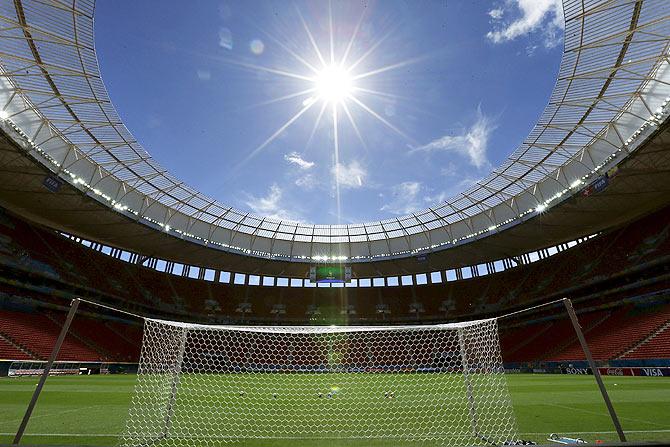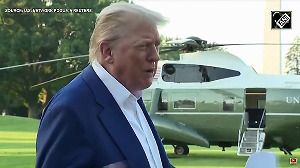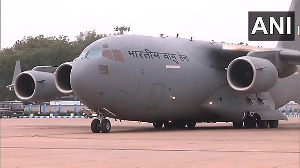Tickets for matches in Brasilia have already been on sale for months and it remains unclear how fans, many of whom may have bought flights and booked hotels, would be reimbursed

In the midst of Brazil's deepening economic crisis, its cash-strapped capital may not have the money to fulfil a promise to host Olympic football games next year, leaving unused the most expensive stadium built for the 2014 World Cup.
The Rio 2016 organising committee has given Brasilia until mid-November to sign a contract or be stripped of the seven games set to be held there next year, a spokesperson said.
Tickets for matches in Brasilia have already been on sale for months and it remains unclear how fans, many of whom may have bought flights and booked hotels, would be reimbursed.
Football games for the Olympics in Rio de Janeiro next year are set to be played in six cities across the country to make use of venues built for the World Cup.
In Brasilia officials are scrambling to draw up a management plan for the games but say the debts inherited from the previous leftist governor have forced them to take tough decisions and commitment to the Olympics is uncertain.
The doubts about Brasilia's ability to hold the matches are the latest reminder of how popular euphoria about the World Cup and the Rio Olympics has soured as Brazil has plunged into recession and financial straits.
"We are doing our homework now to see if we can sign this in time, but it's not certain," Brasilia's sports secretary, Leila Barros, told Reuters.
Under the terms of the Rio 2016 contract, the city bears the cost of hosting the matches but the profits go to the organising committee. In theory the city is meant to recoup the costs through the benefit to the local economy, with hotels and restaurants enjoying an increase in business.
Brasilia's 70,000-seat Mané Garrincha National Stadium is Brazil's second-largest and cost taxpayers more than $800 million to build at the time, a price tag that helped fuel violent protests in the build up to the World Cup.
But the city now struggles to cover the $2.5 million it costs to maintain it per year, with the magnificent coliseum-like building hardly used and generating little revenue.
NO TAKERS
Built in a city with no football tradition or first division team, it has hosted less than a dozen professional games this year. During the World Cup, it was one of only two stadiums to host seven matches, including the third-fourth place play-off between Brazil and the Netherlands.
Since then, its biggest crowds have come to see concerts by Paul McCartney and Beyoncé. This year it was used for a women's forum by social groups and labour unions, a mass wedding ceremony put on by local police, and a monster truck festival.
A plan to contract private investors to run the stadium as a concession and build restaurants, shops and a hotel on the site has found no takers.
Brasilia's Governor Rodrigo Rollemberg had hoped the Olympics would be a chance to reestablish the stadium's role as a sports venue instead of an entertainment centre, aides said.
Rollemberg decided to go ahead with the matches earlier this year, committing the city to a plan initiated by his leftist predecessor Agnelo Queiroz, a member of Brazil's ruling Workers Party. Rollemberg did so against the advice of his economic advisors, according to Helio Doyle, who was involved in the decision as the governor's chief of staff.
Doyle, who has since quit his role, said no study was done to see whether the city could recover the costs demanded by the organising committee, such as providing hotels for athletes and vehicles with bilingual drivers. Officials have not provided an estimate of what the total costs might be.
When he took office in January, Rollemberg received a city with debts of $1 billion, a year of unpaid benefits due to employees and wage increases already agreed by Queiroz.
If Brasilia does sign up for the games, four men's and three women's football matches are slated to take place there. Doyle doubts they will fill the stadium like the World Cup did.
"The city can't afford to hold the Olympic football games here. It can barely pay its employees," Doyle said, adding that the Olympic committee would be doing the city government a favour if it dropped Brasilia, as it will if the city fails to commit by mid-November.








